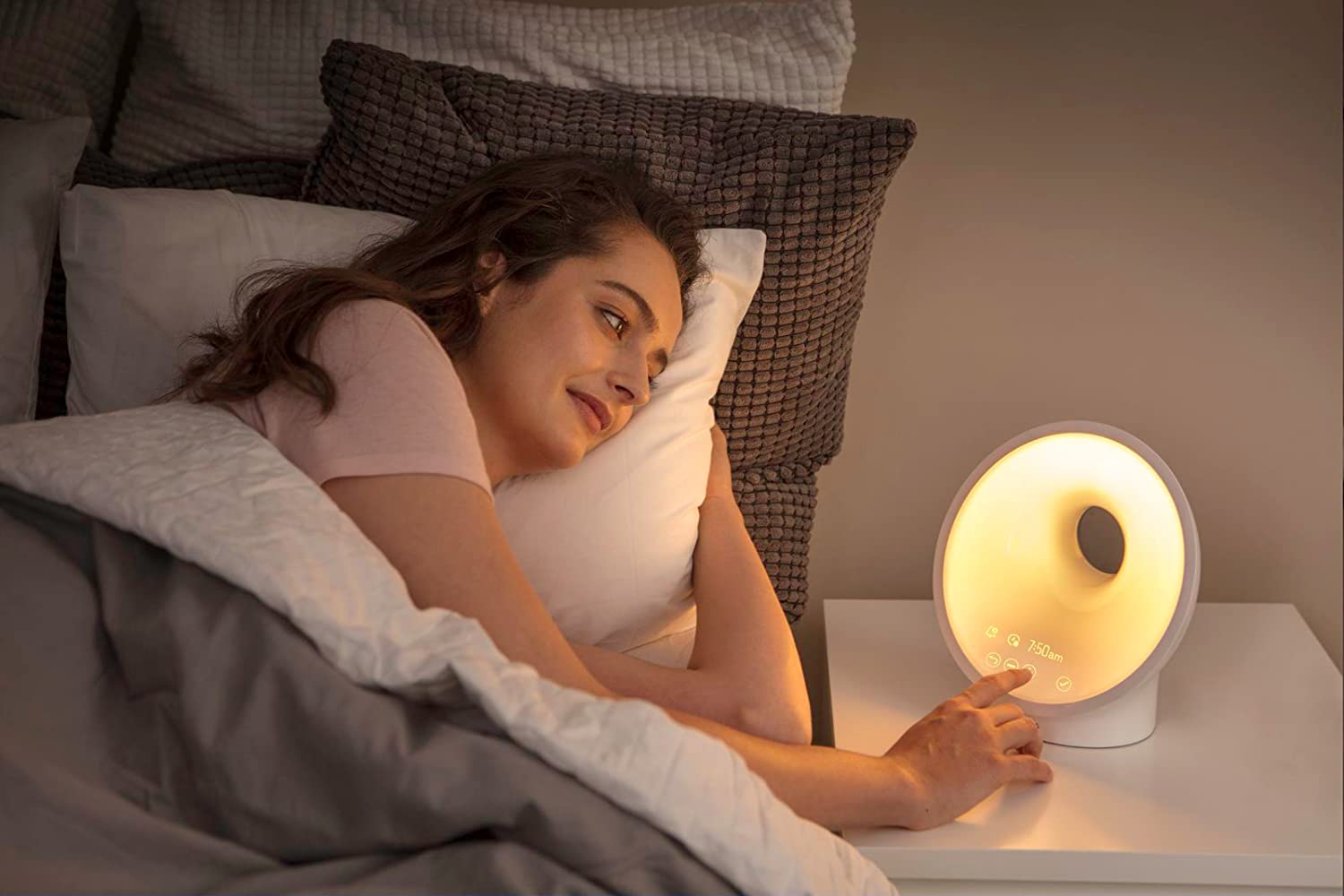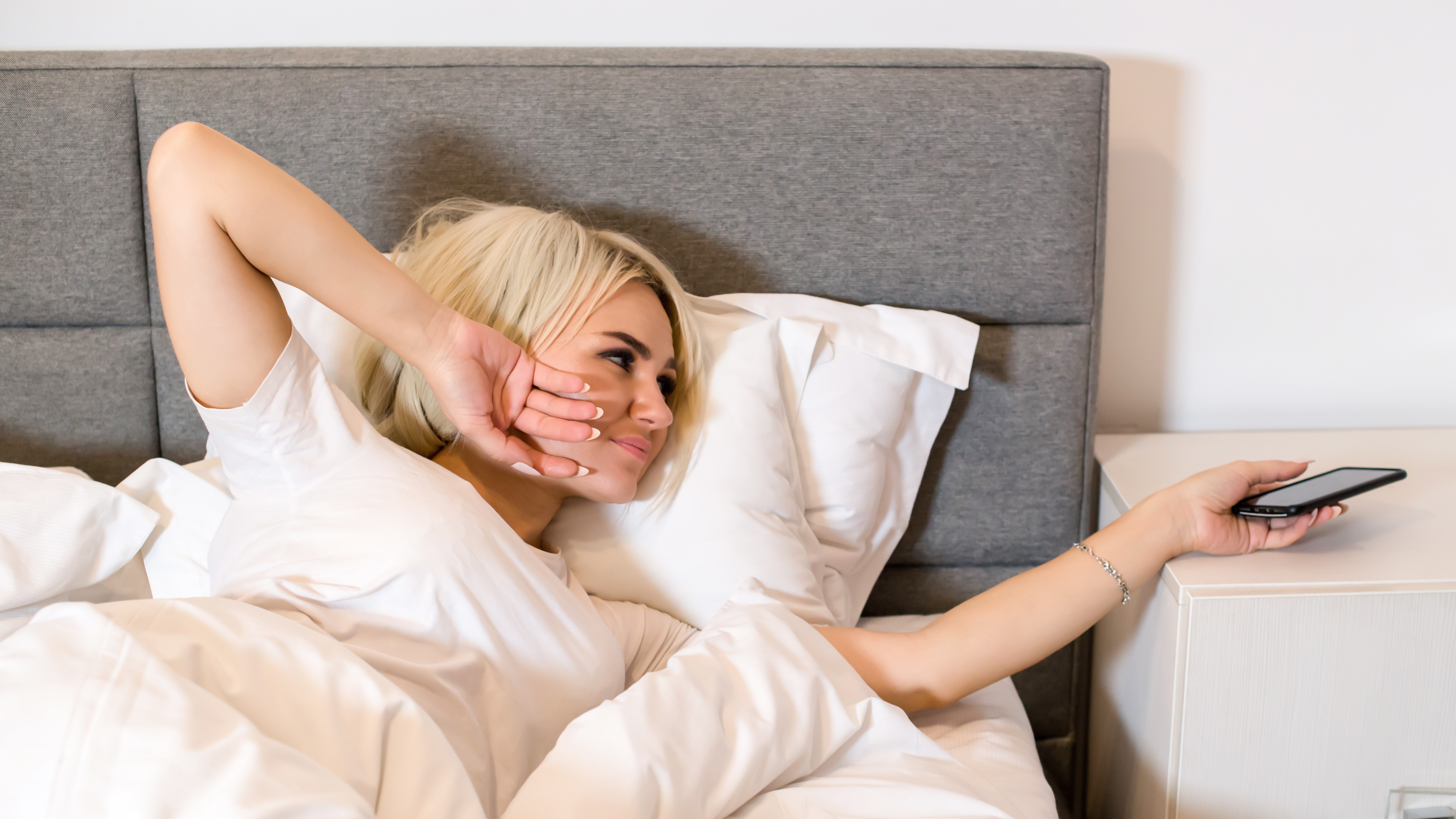Does sleep tech really work? TechRadar asks an expert

Sign up for breaking news, reviews, opinion, top tech deals, and more.
You are now subscribed
Your newsletter sign-up was successful
There’s a huge array of tech that promises to help you sleep more deeply, and wake full of zest and energy in the morning. Sleep trackers, white noise machines, noise cancelling sleep earplugs, calming wake-up lights – you could easily pack your bedroom with machines and strap on a whole armful of watches in the interests of improving your nightly rest. But does any of it actually work?
To find out whether tech can genuinely help you sleep better and feel more rested, TechRadar spoke to James Wilson, aka The Sleep Geek. Wilson is a sleep behaviour and environment expert who specializes in helping people understand their sleeping habits, and make changes to their behaviour, environment, and mindset to sleep better.
Here, he shares his advice on the sleep tech that really makes a difference, the devices you should be wary of, and everything else you should know before making an investment.
Are sleep trackers helpful, or do they cause unnecessary anxiety about sleep?
Currently there are a number of issues with trackers. They're not massively accurate and we have to be careful to not take the data at face value. Secondly, we don’t have the context to interpret the data, so although the tracker might be telling us we have had 30% REM sleep, we don’t know it that’s good or bad. Thirdly, trackers tell us as a poor sleeper something we already know: that we have slept poorly.
We can’t force ourselves to sleep better, in the way we can exercise more or eat more healthily. Often trackers lead to greater anxiety and even worse sleep. I use them from time to time, particularly in sports where I have an athlete not engaged with their sleep enough, and a tracker can help that engagement. Beyond that, in my experience they make poor sleep worse.
However, as we move away from wearable to nearable and airable trackers, I see a future where we can be tracked, but only notified when there is a change that will be detrimental to us.

Are there benefits to using a wake-up light rather than a regular alarm clock?
Massive benefits, and if you are going to bring a bit of technology into your bedroom then a wake-up light should be it.
Sign up for breaking news, reviews, opinion, top tech deals, and more.
An audible alarm shocks us into wakefulness, leaving us pressing snooze time and time again, and makes the whole wake up experience pretty horrid. A wake-up light slowly pulls you out of the deeper stages of sleep, starts the body creating wake up hormones like cortisol and diminishes hormones connected to sleep like melatonin, so even if you still have an audible alarm, it's not such a shock to the system.
Can a white noise machine help you sleep at night?
Yes, for some people, and I would add pink noise into the equation too. Basically, our hearing is the last of our senses to switch off and the first of our senses to switch on as we move in and out of sleep. It is our security system designed to protect us from predators. Sudden noise drags us into consciousness, and a noise machine or app has a constant soothing sound which relaxes and masks any sudden noises.
However, they're not for everyone, and some people find the constant noise incredibly irritating.
Is wearing earplugs at night a good idea?
Yes, in a similar way to white or pink noise, earplugs help create a consistent sleep environment and help us rest more peacefully. Often traditional foam or putty ones are hard to get used to, but brands like Flare and QuietOn have developed some innovative, reusable products.

Are there any smartphone apps that you’d recommend to people who struggle to sleep?
For me, it's focusing on content that can relax us and help prepare us for sleep. Tracking apps are pretty useless in terms of accuracy and drive sleep anxiety, and many of the sleep improvement apps are overly prescriptive. They also demand massive lifestyle changes because they are based on approaches designed for chronic insomniacs.
Your meditation app of choice, whether it is Headspace, Calm or Insight Timer. Spoken word book apps like Audible are great and podcast apps like Spotify or Apple Music give us access to content such as podcasts designed to be sleep-inducing.
This article is part of TechRadar's Sleep Week 2021 (running from Sunday 31 October to Sunday 7 November), our in-depth look at sleep and how to snooze better. We've teamed up with experts in their field to bring you sleep techniques and tips to help you drift off easier, and have rounded-up the best sleep kit to transform your bedroom into a den of zen.
- The best Saatva mattress sales and discounts for luxury sleep for less
- Our guide to the biggest Nectar mattress discounts and sales

Cat is TechRadar's Homes Editor specializing in kitchen appliances and smart home technology. She's been a tech journalist for 15 years, having worked on print magazines including PC Plus and PC Format, and is a Speciality Coffee Association (SCA) certified barista. Whether you want to invest in some smart lights or pick up a new espresso machine, she's the right person to help.